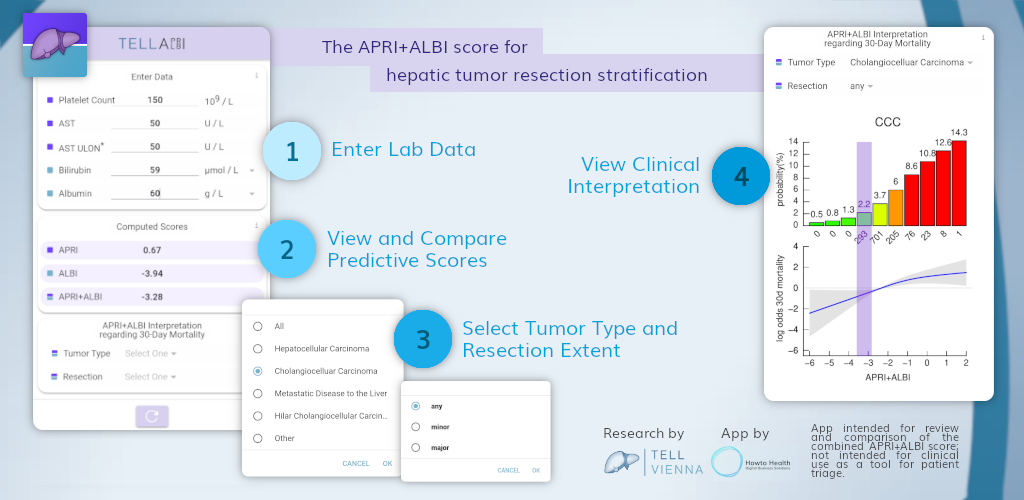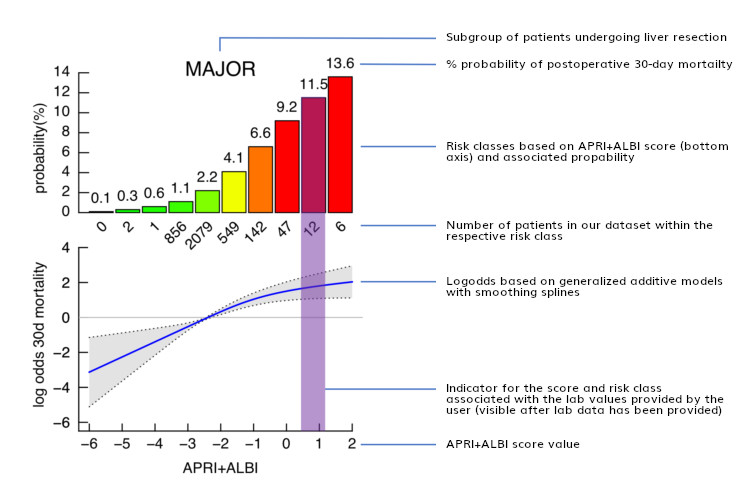
Bringing novel digital health tools to the bedside is one of the most challenging hurdles in the digitalization of healthcare. This also applies to new methods for patient stratification developed on large data sets in clinical research:
The more input data is being used and the more complex the mathematical models are to infer a scoring from these inputs, the more difficult it is for clinicians to transfer research findings into clinical routine without the assistance of digital tools – or even for clinicians make an initial assessment of the utility of a published scoring method.
This very challenge motivated the Translational Experimental Liver Laboratory at the Medical University of Vienna (TELLVIENNA) to contact us for a joint project.
Predicting postoperative liver dysfunction after resection is an important but challenging task in clinical routine.
Assessing the severity of illness for patients suffering from hepatic tumors and predicting postoperative liver dysfunction after resection is an important but challenging task in clinical routine. The APRI and ALBI scores are commonly used to guide such cinical assessment. Combining these scores, the APRI+ALBI score developed by TELLVIENNA provides even better performance of assessment and prediction regarding 30-day-mortality after surgery.
The TELLAPRIALBI App
As a first step to making this novel score more palpable for medical professionals, the TELLAPRIALBI app allows them to
- enter relevant lab parameters (platelet count, AST, albumin and bilirubin levels)
- automatically compute APRI, ALBI and APRI+ALBI scores from these parameters for comparative review
- select from a variety of hepatic tumor types together with the respective extent of resection and
- view clinical interpretation plots regarding 30-day-mortality post operation that highlight the risk class indicated by the APRI+ALBI score and show a number of details relevant for interpretation.

The app is intended for educational use by medical professionals and to allow review and comparison of the APRI+ALBI score and its predictive quality. It must not be used as a medical device and shall not replace clinical judgment. All information entered into the app and computed by it is processed exclusively within the app on the user’s device and no information is stored, transmitted or shared by the app.
We developed TELLAPRIALBI with the Translational Experimental Liver Laboratory at the Medical University of Vienna (TELLVIENNA). It is based on a joint research paper which is available open access at BJS Open.